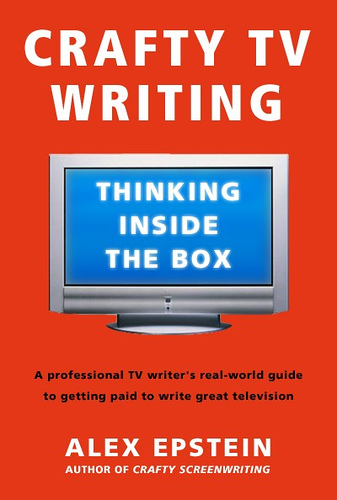
Chapter 9: Moving Up the Food Chain
Story Editors
There’s no qualitative difference in job descriptions between a story editor and a co-executive producer. Both write scripts. Both rewrite scripts. Both break story. One just outranks the other. A story editor could wind up rewriting a co-executive producer’s script, but it’s far more likely that the co-executive producer will be doing the final pass on the story editor’s script; and of course the showrunner rewrites everyone, time permitting.
Like any office, different writing offices have different protocols. Some are egalitarian. The credits mean little more than who gets paid the most. Others are hierarchical: junior story editors are expected to keep their mouths shut in the room unless the executive story editor asks for their opinions. Marc Abrams (The Bernie Mac Show):
As you go from show to show you learn that each has its own temperature and its own etiquette. You recognize your role on that particular show. Certain show runners encourage the lower-level writers to pitch ideas, others don’t. Some want ideas well thought out before they are presented, others like to hear the kernel of an idea that could be expanded.
A good story editor is a team player. Although you need to get your scripts done on time, you also need to do your part to make sure the writing staff as a whole keeps the scripts moving smoothly through the pipeline. That may mean helping another writer re-break a story, or brainstorming a scene he’s having trouble writing. Sometimes, to help a writer meet a deadline, you’ll write an act, or a B story. When a script is seriously late, everybody may write an act — called “gang banging” a script.
Whenever you’re not busy — all your own scripts are done or waiting for notes — you should be working up new story pitches for later episodes. A thirteen episode season may get picked up for the “back nine,” and suddenly there are eighteen new story lines needed. Melinda Hsu:
And you must always, always get along and do more than your share. Give other people credit for ideas that they had; thank people for their help; stay in the office until people who outrank you leave for the day; be at your desk even if nothing in particular is going on; don’t talk behind peoples’ backs, don’t be demanding, don’t be crazy or arrogant or disorganized or slow or difficult to work with. Don’t miss deadlines, no matter how understanding your peers and bosses seem to be.
Being a team player applies not only to whose project you work on, but how you treat your own ideas. A good basketball player gets the ball to the person who’s got the best shot at the basket; she only shoots if she’s got the best shot. A good story editor helps the story go in the direction that seems best for the story. If it’s your idea, great. If someone else’s idea works better, go with theirs. Melinda Hsu:
You want to keep the conversation moving and the ideas flowing, but you can’t just blurt out everything that pops into your head because you need to respect the direction that the story is already moving in (unless you have an unbelievably genius idea). And even if you have a genius idea and it gets shot down, you have to let it go right away and not take it personally. Some of the worst things you can do in a room are:
a) stay immovably fixed on a single idea,
b) not come up with any ideas at all, and
c) fail to keep up with the discussion – e.g. forget discarded ideas that have already been raised, not follow the twists of the story that the other writers are proposing, not think fast enough and have to have things repeated and re-explained for your benefit.
It’s an important skill to know when to say nothing even if you’d do it differently if you were in charge, and how to catch up by listening when you realize that you didn’t quite follow that last proposed plot twist.
As in any office, even in an egalitarian situation, you need to remember who’s working for whom. I asked Paul Guyot what’s the biggest mistake story editors tend to make on the job:
Thinking they know more than the executive producers. No, I take that back. It's opening their mouths and saying they know more than the executive producers. You may be a story editor or even a staff writer, and you may very well know a lot more than the executive producer. But keep your mouth shut. It's his or her show, not yours. Shut up and do your job.
Chris Abbott seconds that emotion, warning against “not paying enough obeisance to the exec producer.” And Kay Reindl (Twilight Zone, Millenium):
Although a showrunner may insist that everyone in the room have equal voice, a staff writer who consistently gives unsolicited notes to someone above them is considered trouble. You may be the most brilliant writer of all time, but on staff, you're still a baby writer and you're there to learn. Nobody likes a cheeky staff writer! I've worked with eager staff writers who do a great job and learn a lot, and staff writers who really needed to stop talking. So just remember that you're there to learn both how to do things right, and how not to do things.
It’s not a bad idea to check in with your boss now and then to see if there’s anything you could be doing more of or less of. Just because someone outranks you doesn’t mean they’re comfortable criticizing you. They may not say anything until it becomes a problem. Don’t let it get that far. Make it easier for them to criticize. Ask them to.